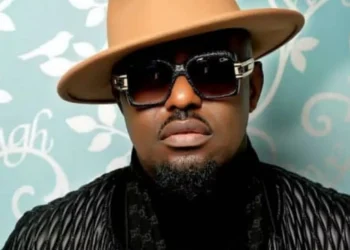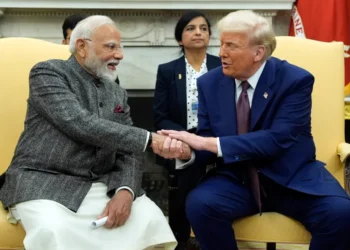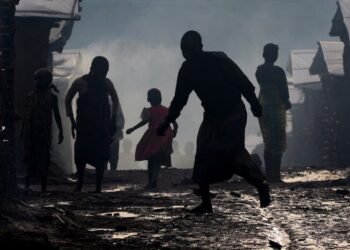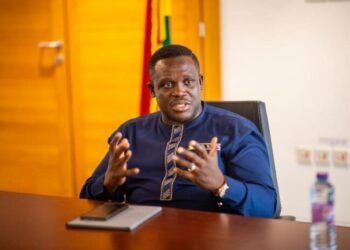Kazumi Matsui, the Mayor of Hiroshima has led calls for the world’s most powerful countries to abandon nuclear deterrence, at a ceremony to mark 80 years since the city was destroyed by an American atomic bomb.
At the Hiroshima Peace Memorial Park, dignitaries and the dwindling number of survivors commemorated the moment a US B-29 bomber dropped the atomic weapon known as “Little Boy” on August 6, 1945.
Three days later, the nearby city of Nagasaki was destroyed by a second US atomic bomb. More than 110,000 were killed instantly in the attacks, while hundreds of thousands more perished from injuries and radiation-related illness over the years.
As residents, survivors and representatives from 120 countries gathered at the city’s peace memorial park, Kazumi Matsui warned that the conflicts in Ukraine and the Middle East had contributed to a growing acceptance of nuclear weapons.
“These developments flagrantly disregard the lessons the international community should have learned from the tragedies of history.
“They threaten to topple the peace-building frameworks so many have worked so hard to construct.”
Kazumi Matsui
He also urged younger people to recognise that acceptance of the nuclear option could cause “utterly inhumane” consequences for their future.
Despite the global turmoil, he said, “we, the people, must never give up.” He added, “Instead, we must work even harder to build civil society consensus that nuclear weapons must be abolished for a genuinely peaceful world.”
White doves were released into the sky, while an eternal “flame of peace” burned in front of a cenotaph dedicated to victims of the world’s first nuclear attack.

The ceremony is seen as the last opportunity for significant numbers of ageing hibakusha – survivors of the atomic bombings of Hiroshima and Nagasaki – to pass on first-hand warnings of the horror of nuclear warfare.
According to recent data from the health ministry, just under 100,000 survivors are still alive, with an average age of just over 86.
The advanced age of the survivors of the Hiroshima and Nagasaki bombs has become a defining theme of the anniversary.
At the ceremony, the names and other personal details of more than 4,940 registered survivors who have died in the past year were added to a registry kept inside the cenotaph, bringing the number of deaths attributed to the Hiroshima bombing to almost 350,000.
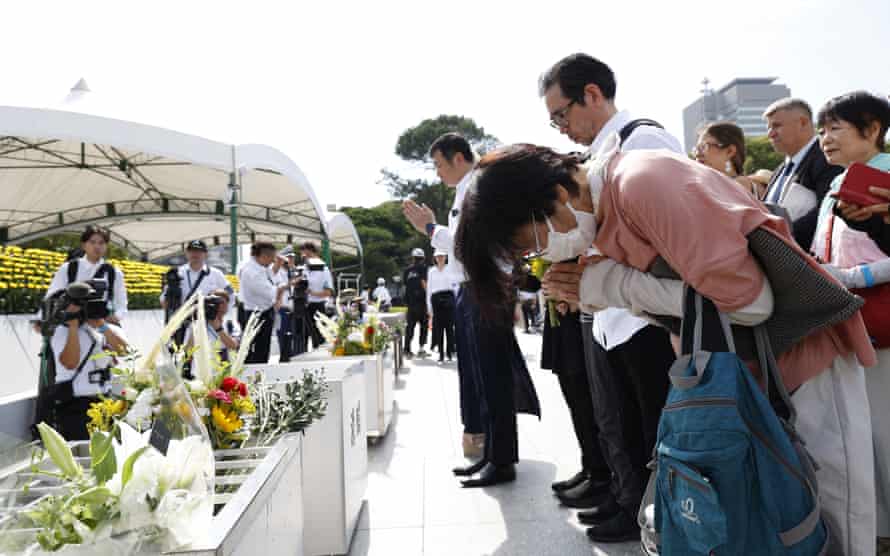
At 8.15am, the exact time the bomb detonated, Hiroshima observed a moment of silence.
After laying a wreath in front of the cenotaph, Japanese Prime Minister, Shigeru Ishiba, stated that it was Japan’s “mission” as the only country to have been attacked by nuclear weapons to lead global efforts towards disarmament.
World Faces Greater Nuclear Threat
Meanwhile, Nihon Hidankyo, a nationwide network of A-bomb survivors that last year won the Nobel peace prize, said in a statement that humanity was in a race against time to challenge the US and Russia – which together possess 90% of the world’s 12,000-plus nuclear warheads – and other nuclear states.
“We don’t have much time left, while we face a greater nuclear threat than ever. Our biggest challenge now is to change nuclear weapons states … even just a little.”
Nihon Hidankyo
Contemporary tensions have been reflected in just the past week, with nuclear saber-rattling between Russia and the United States over Moscow’s invasion of Ukraine.
Also, recent months have seen the US strike Iranian nuclear facilities with its powerful conventional bombs in a bid to stop Tehran’s nuclear program.
Earlier in the year, nuclear powers India and Pakistan fought a brief conflict over the long-running issue of control of Kashmir, prompting world leaders to scramble and avoid a dangerous escalation between the two.
Hans Kristensen, Associate Senior Fellow with the Stockholm International Peace Research Institute’s (SIPRI) Weapons of Mass Destruction Program, said in June, “We see a clear trend of growing nuclear arsenals, sharpened nuclear rhetoric and the abandonment of arms control agreements.”
Experts warn that a single modern nuclear weapon, if exploded over a large city, could kill millions instantly.
According to SIPRI, there are more than 12,000 total in the hands of nine nuclear powers – the US, Russia, China, France, the United Kingdom, India, Pakistan, North Korea and Israel.
READ ALSO: COCOBOD CEO Reveals Hidden Cocoa Contract Rollovers Worth Millions




